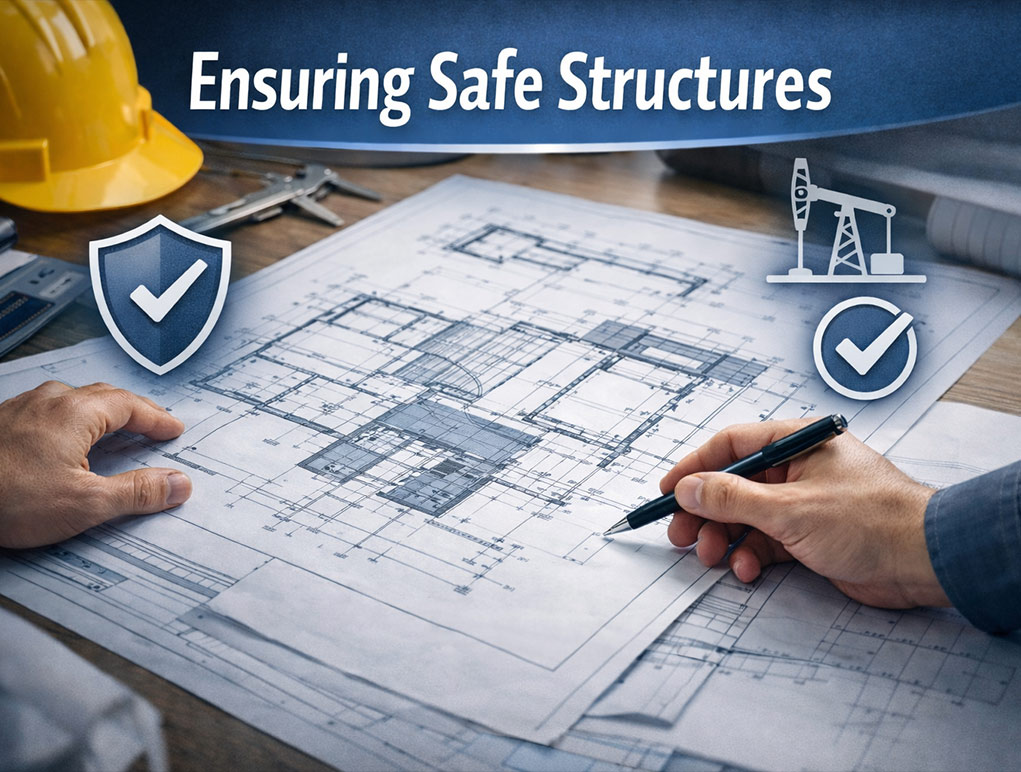
Geotechnical Soil Testing: Building Safe from the Ground Up
Geotechnical soil testing - Before starting any construction, geotechnical soil testing is one of the most important steps. Builders, Engineers, and Property owners need to understand what’s beneath the surface — the strength, type, and stability of the soil. This helps to avoid future issues. Even a well-designed structure can face serious problems over time, if the test is not performed.
What Is Geotechnical Soil Testing?
Geotechnical soil testing is the process of studying the physical and mechanical properties of soil and rock at a site. Engineers decide how to design foundations, retaining walls, and drainage systems that stay strong for years based on this testing.
During testing, soil samples are collected from various depths and analyzed in a laboratory. This helps us to understand how the ground will react under the weight of a structure or during events like heavy rain or ground movement.
Based on this data, we make smart choices about materials and foundation design. To avoid costly issues such as cracks, uneven floors, or settling after construction, we prefer to do soil testing.
Why Geotechnical Soil Testing Matters
The ground is where every building starts. If Engineers do not test the soil correctly, it fails to support the planned load. Shifting foundations or even structural failure can be caused as a result.
Testing helps catch potential problems early, such as:
-
Weak or loose soil that can’t support heavy loads
-
High water tables that cause flooding or instability
-
Expansive clay that swells and shrinks with moisture changes
Safer and more efficient solutions can be designed by Engineers when these conditions are known in advance.
How LB Engineering Performs Geotechnical Soil Testing
At LB Engineering, our team uses modern tools and proven methods to deliver accurate results. We combine field testing with lab analysis for a clear picture of your site’s conditions.
Here’s how the process works:
-
Site Evaluation – We visit the location and study the area’s surface features.
-
Soil Sampling – Our Engineers collect samples using drills or test pits.
-
Laboratory Analysis – Each sample is tested for density, moisture, strength, and composition.
-
Detailed Reporting – You’ll receive a clear, easy-to-read report with recommendations for design and construction.
We also offer advanced testing for special cases like deep foundation projects, vibration monitoring, and slope stability analysis.
It is made easy for builders, architects, and Property owners to make informed decisions before breaking ground by LB Engineering’s approach.
When Do You Need Geotechnical Soil Testing?
This testing isn’t just for large projects. It’s useful for:
-
New home construction
-
Commercial and industrial buildings
-
Road and bridge projects
-
Seawall or foundation repairs
-
Additions or remodeling on existing structures
If digging, grading, or adding new loads to the ground are involved in your project, risks and delays can be avoided with the help of a soil test.
Benefits of Geotechnical Soil Testing
-
Stronger foundations — Designs are based on real data, not guesswork.
-
Cost savings — Detecting problems early prevents expensive rework later.
-
Safety — Reduces the risk of structural damage or collapse.
-
Regulation compliance — Helps meet state and local building codes.
Reliable results mean you can move forward with confidence.
Why Choose LB Engineering
LB Engineering has years of experience in geotechnical soil testing throughout Florida. Our team works closely with contractors, architects, and property managers at every stage of design and construction.
We’ve built our reputation on accuracy, customer service, and long-term relationships — over 90% of our work comes from repeat clients. With the addition of RR Engineering, we’ve expanded our capabilities in ground vibration monitoring and deep foundation inspection.
Learn more about our Geotechnical Engineering Services. You can also explore other Engineering Solutions we provide.
To get expert help, you may visit our Home Page or call (239) 936-7557.
FAQs About Geotechnical Soil Testing
1. What does a soil test include?
It includes checking soil strength, type, moisture content, and how it reacts under load.
2. How long does soil testing take?
Most standard tests take a few days, but larger sites may need more time.
3. Is soil testing required before construction?
Yes. In most states, soil testing is a part of building code requirements for safety.
4. Can LB Engineering test soil for both small and large projects?
Absolutely. We handle everything from single-lot builds to large commercial projects.






